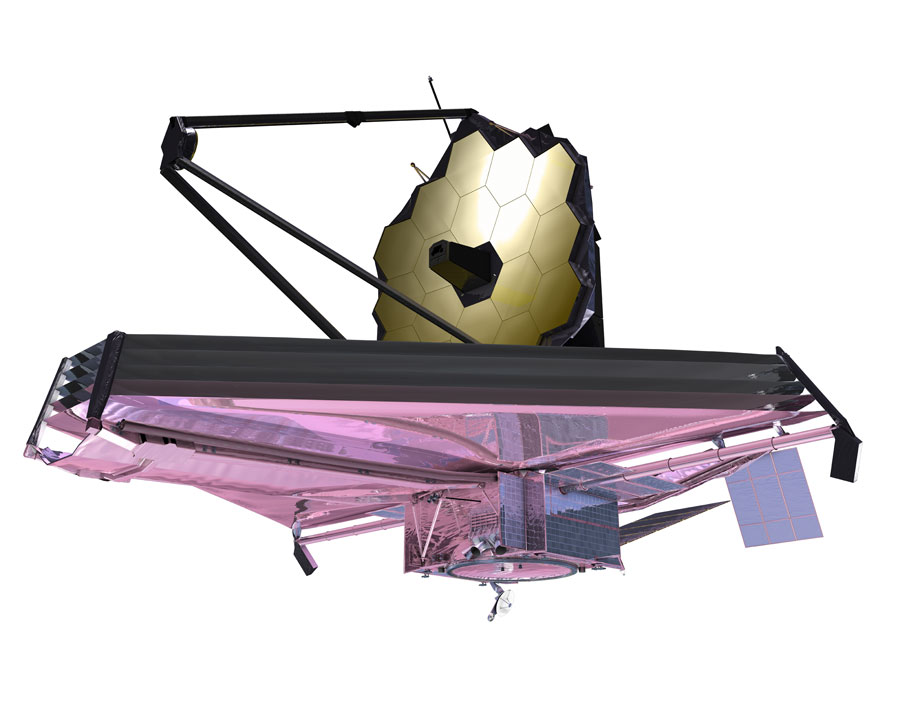JWST Time Proposal Training Workshop
The James Webb Space Telescope (JWST) has re-opened its first “General Observer” (GO) call for proposals. It’s time to think about writing a JWST proposal! The proposal deadline is May 1 2020. On March 19 2020, STScI announced that the deadline was moved to no earlier than May 27 2020. They will update the date on April 15 2020.
This free workshop is an opportunity for you to learn about the Observatory and the different software tools needed to submit a proposal. We expect between 15 and 30 participants but can accommodate more.
There is no registration deadline. However, the earliest you register, the higher your chances are that your preferred instrument mode will be covered during the workshop.
Recording of the Workshop
The morning session was recorded and is posted on the NIRISSInstrumentTeam Youtube channel. It is a 2-hour presentation covering the following material:
- JWST instrument modes overview
- Visit splitting distance
- Field of regards (target visibility)
- Observatory and instruments position angle coordinates
- Detector readout and exposure time
- Call for proposals and policies
- General writing tips
- JWST documentation (JDox) demo
- Exposure Time Calculator (ETC) demo
- Astronomer Proposal Tool (APT) demo
We will post here (with links to Youtube) a series of additional short (~5 min) videos to address specific topics regarding mostly Time Series Observations. We invite people interested in other observing modes (long-slit spectroscopy and integral field spectroscopy) to contact us directly to schedule a personal presentation on those two topics for which we prepared slides and an exercise:
UdeM workshop slides (v2)
UdeM workshop Long-slit & IFU exercises (v2)
Who will train you?
- Neil Cook (UdeM – post-doc trained at the STScI Master Class of November 2019)
- Loïc Albert (UdeM – NIRISS Instrument Scientist)
- Geert Jan Talens (UdeM – post-doc working on JWST)
- Alexandros Maragkoudakis (University of Western Ontario – post-doc trained at the STScI Master Class of November 2019)
- A JWST scientist from the Space Telescope Science Institute (2h remote availability)
Preparation before the Workshop
We strongly encourage all registered participants to arrive at the workshop with all relevant tools already installed on their computers. Furthermore, participants who will have already started their proposals before the workshop will likely gain the most insight during this event.
Please download and install the following tools on your laptop computer before attending the workshop:
- The newest version of APT
- Conda/Astroconda
- General target visibility tool
Please also complete the following tasks:
- Create a MyST account (for the ETC and Helpdesk) (if you don’t already have one)
- Access the Exposure Time Calculator (ETC)
Supporting Material
Here is the slide package (morning presentations material) as well as pdf documents (afternoon hands-on material)
UdeM workshop slides
UdeM workshop Long-slit & IFU exercises
An updated version is here:
UdeM workshop slides (v2)
UdeM workshop Long-slit & IFU exercises (v2)
Introductory material is also available on STScI’s Workshop-in-a-box webpage.
Have further questions? Contact us
Please don’t hesitate to contact jwsthelp@astro.umontreal.ca if you have any questions.
Code of Conduct
For this workshop, we are adopting the policy of the American Astronomical Society (AAS) that all participants in Society activities will enjoy an environment free from all forms of discrimination, harassment, and retaliation. In pursuit of that ideal, we and the AAS are dedicated to the philosophy of equality of opportunity and treatment for all members, regardless of gender, gender identity or expression, race, color, national or ethnic origin, religion or religious belief, age, marital status, sexual orientation, disabilities, veteran status, or any other reason not related to scientific merit. Harassment, sexual or otherwise, is a form of misconduct that undermines the integrity of this workshop. For more information, please refer to the AAS Code of Ethics.
Note from STScI
Note from STScI: JWST Master class graduates offer a valuable service to their local communities by organizing JWST proposal planning workshops. They help potential proposers find the basic information they need to prepare for JWST, and they facilitate the initial learning process. Graduates are not representatives of STScI, and there is no expectation that they will be able to respond to all inquiries and questions. The final authority for all information about JWST science and the proposal process resides with the JWST Documentation System (JDox), the STScI Helpdesk at jwsthelp.stsci.edu, and the JWST science website at jwst.stsci.edu.
Complete List of Time Proposal Tools
Astronomer Proposal Tool (APT) | You build your observations and submit your proposal with this tool. |
JWST User Documentation (JDox) | This wikipedia-like collection of articles is the reference bible to know all about JWST. |
JWST Helpdesk | Check this site if you have unanswered questions. The STScI staff should respond within 48 hrs. |
Exposure Time Calculator (ETC) | This is the official exposure time calculator that allows detailed calculations of simple or complex astrophysical scenes with a GUI. |
JWST Interactive Sensitivity Tool (JIST) | This is a simplified exposure time calculator to give you rough estimates of expected performance for various observing modes. |
Background Tool | This tool quantifies the expected background signal coming from the zodiacal light, thermal emission and scattered light. Most important for MIRI observations. |
General Target Visibility Tool (gtvt) | Used to know exactly when your target can be observed with JWST and at what position angle. |
Moving target Visibility Tool (mtvt) | Used to know when a moving target (solar system) can be observed. |
WebbPSF | This tools generates expected point spread functions (PSFs) for the various JWST instruments at various wavelengths. Should you need to go in details. WebbPSF is used by the ETC to generate calculations. |
PandExo | Exposure Time Calculator for exoplanets time-series observations (TSO). |
